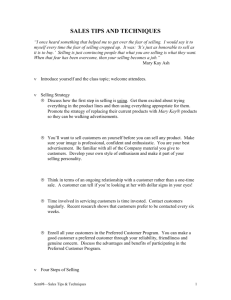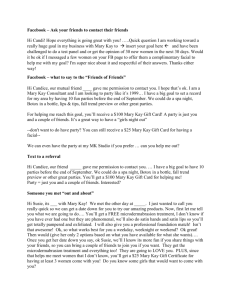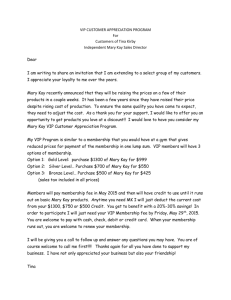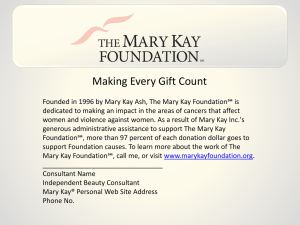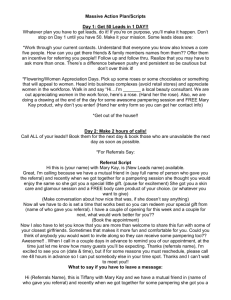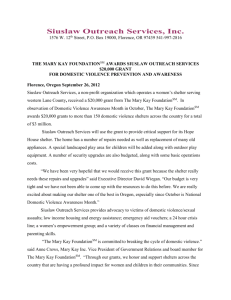Mary Kay Ash Case Study
advertisement
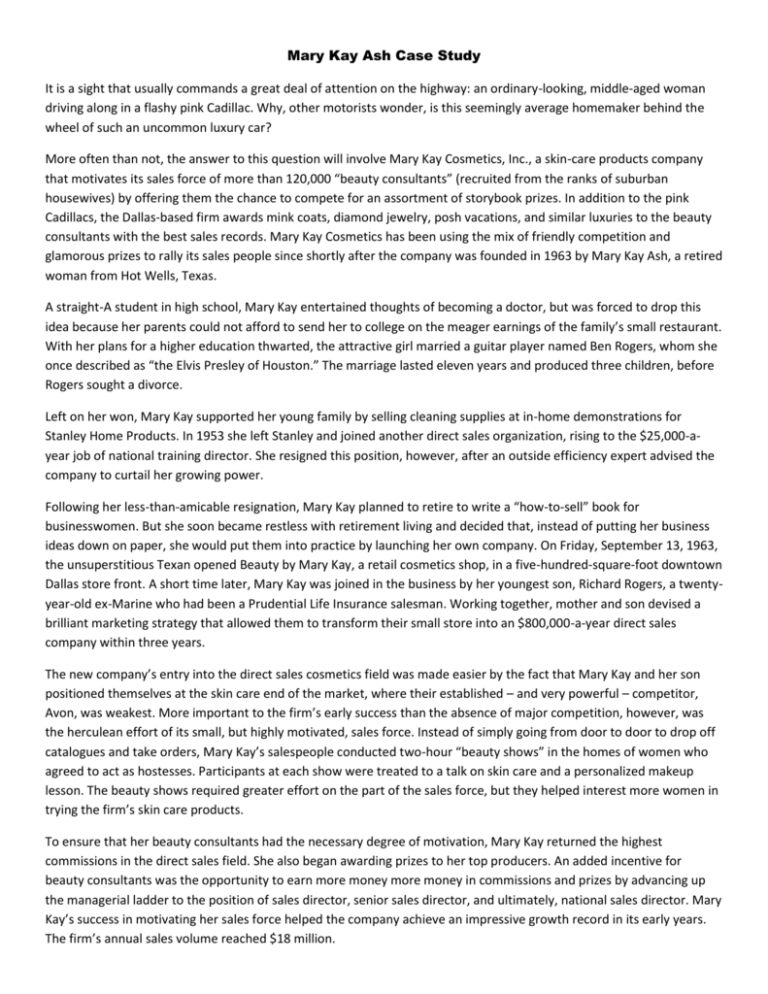
Mary Kay Ash Case Study It is a sight that usually commands a great deal of attention on the highway: an ordinary-looking, middle-aged woman driving along in a flashy pink Cadillac. Why, other motorists wonder, is this seemingly average homemaker behind the wheel of such an uncommon luxury car? More often than not, the answer to this question will involve Mary Kay Cosmetics, Inc., a skin-care products company that motivates its sales force of more than 120,000 “beauty consultants” (recruited from the ranks of suburban housewives) by offering them the chance to compete for an assortment of storybook prizes. In addition to the pink Cadillacs, the Dallas-based firm awards mink coats, diamond jewelry, posh vacations, and similar luxuries to the beauty consultants with the best sales records. Mary Kay Cosmetics has been using the mix of friendly competition and glamorous prizes to rally its sales people since shortly after the company was founded in 1963 by Mary Kay Ash, a retired woman from Hot Wells, Texas. A straight-A student in high school, Mary Kay entertained thoughts of becoming a doctor, but was forced to drop this idea because her parents could not afford to send her to college on the meager earnings of the family’s small restaurant. With her plans for a higher education thwarted, the attractive girl married a guitar player named Ben Rogers, whom she once described as “the Elvis Presley of Houston.” The marriage lasted eleven years and produced three children, before Rogers sought a divorce. Left on her won, Mary Kay supported her young family by selling cleaning supplies at in-home demonstrations for Stanley Home Products. In 1953 she left Stanley and joined another direct sales organization, rising to the $25,000-ayear job of national training director. She resigned this position, however, after an outside efficiency expert advised the company to curtail her growing power. Following her less-than-amicable resignation, Mary Kay planned to retire to write a “how-to-sell” book for businesswomen. But she soon became restless with retirement living and decided that, instead of putting her business ideas down on paper, she would put them into practice by launching her own company. On Friday, September 13, 1963, the unsuperstitious Texan opened Beauty by Mary Kay, a retail cosmetics shop, in a five-hundred-square-foot downtown Dallas store front. A short time later, Mary Kay was joined in the business by her youngest son, Richard Rogers, a twentyyear-old ex-Marine who had been a Prudential Life Insurance salesman. Working together, mother and son devised a brilliant marketing strategy that allowed them to transform their small store into an $800,000-a-year direct sales company within three years. The new company’s entry into the direct sales cosmetics field was made easier by the fact that Mary Kay and her son positioned themselves at the skin care end of the market, where their established – and very powerful – competitor, Avon, was weakest. More important to the firm’s early success than the absence of major competition, however, was the herculean effort of its small, but highly motivated, sales force. Instead of simply going from door to door to drop off catalogues and take orders, Mary Kay’s salespeople conducted two-hour “beauty shows” in the homes of women who agreed to act as hostesses. Participants at each show were treated to a talk on skin care and a personalized makeup lesson. The beauty shows required greater effort on the part of the sales force, but they helped interest more women in trying the firm’s skin care products. To ensure that her beauty consultants had the necessary degree of motivation, Mary Kay returned the highest commissions in the direct sales field. She also began awarding prizes to her top producers. An added incentive for beauty consultants was the opportunity to earn more money more money in commissions and prizes by advancing up the managerial ladder to the position of sales director, senior sales director, and ultimately, national sales director. Mary Kay’s success in motivating her sales force helped the company achieve an impressive growth record in its early years. The firm’s annual sales volume reached $18 million. The company’s fortunes took a decided turn for the worse over the next few years. Sales growth failed to keep up with inflation, and Mary Kay Cosmetics might have continued its financial slide had not its founders revamped their marketing strategy. After analyzing the company’s problem, Mary Kay and Richard Rogers came to the conclusion that the quality of their sales organization had suffered because the cash bonuses and prizes awarded to their sales-women did not keep pace with inflation. Consequently, the company was no longer attracting as many high-caliber saleswomen as it had in the early years. “We lost our competitive edge in the job market,” lamented Rogers. To regain that edge, Mary Kay and her son improved their compensation program. In addition to Cadillacs, they began to award pink Buick Regals so that a greater number of saleswomen would have a chance to win a car. They also introduced a $300-a-month volume bonus to augment the existing commission schedule. As a result of the company’s efforts there was a “real explosion of growth in the sales organization.” Today, Mary Kay Cosmetics is continuing to grow, with Mary Kay Ash as its chairman of the board and Richard Rogers as president. Now a great-grandmother, the peaches-and-cream complexioned executive is a living advertisement for her skin care products. Everyone who meets her is impressed with how young she looks for her age – although exactly what her age is remains a matter of conjecture, since Mary Kay keeps her date of birth a closely guarded secret. “A woman who will tell you her age will tell you anything” is her stock reply to questions on the subject.
